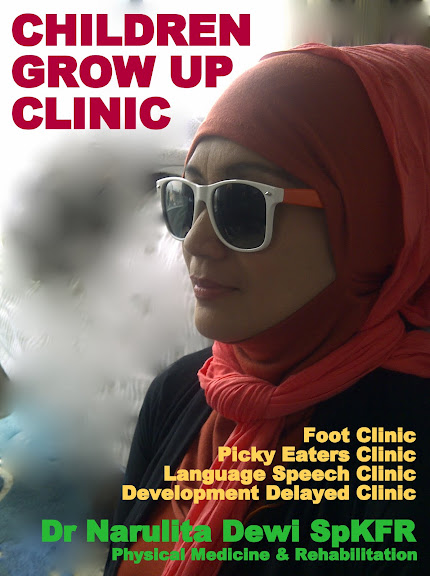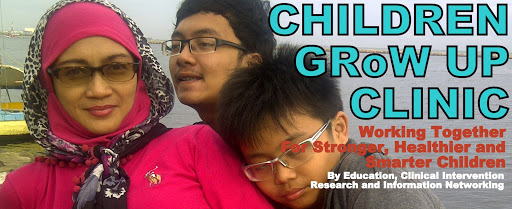Sensory modulation and affective disorders in children and adolescents with Asperger’s disorder.
Pfeiffer B
Am J Occup Ther. 2005 May-Jun;59(3):335-45.
Abstract
OBJECTIVE: The purpose of the study was to determine if there were significant relationships between dysfunction in sensory modulation, symptoms of affective disorders, and adaptive behaviors in children and adolescents with Asperger’s disorder between 6 and 17 years of age.
METHOD: Parents of 50 children and adolescents between 6 and 17 years of age diagnosed with Asperger’s disorder based on the Diagnostic and Statistical Manual of Mental Disorders-IV criteria completed the (a) Sensory Profile for children 6 to 10 years of age or the Adolescent/Adult Sensory Profile for adolescents 11 to 17 years of age; (b) the Adaptive Behavior Assessment System: Parent Version; (c) Revised Children’s Manifest Anxiety Scale Adapted Parent’s Version; and (d) the Children’s Depression Inventory Adapted Parent’s Version. Descriptive statistics and the Pearson product-moment coefficient of correlation calculations were used for data analysis.
RESULTS: The results indicated that there were significantly strong positive correlations between sensory defensiveness and anxiety (r = .476, p = .000) in children and adolescents with Asperger’s disorder. There were also significant relationships between symptoms of depression and hyposensitivity in the total group (r = .214, p = .05) and the older group (r = .492, p = .027). There were no significant relationships between depression and overall adaptive behavior (r = -.243, p = .089) or anxiety and overall adaptive behavior (r = -.108, p = .455). Significantly strong inverse relationships were found between the specific adaptive behaviors of functional academics, leisure, social skills, and symptoms of depression. Functional academics were also significantly inversely related to anxiety. Specifically, sensory hyper- and hypersensitivity were significantly inversely related to community use and social skills.
CONCLUSION: The data supports positive relationships between anxiety and sensory defensiveness in all age ranges and a relationship between depression and hyposensitivity in older children. Stronger inverse relationships were apparent between specific adaptive behaviors including: (a) symptoms of depression and functional academics, leisure, social skills; (b) anxiety and functional academics; and (c) both sensory hyper- and hyposensitivity and community use and social skills. In this study, as the symptoms of affective disorders increased in children and adolescents with Asperger’s disorder, the functional performance in the adaptive behaviors of functional academics and social skills appeared to decrease. Performance in the adaptive behaviors of community use and socials skills appeared to decrease as symptoms of dysfunction in sensory modulation increase. Further research is necessary to determine the impact of treatment for dysfunction on sensory modulation on affective disorders and performance in specific adaptive behaviors.
Source:
College Misericordia, 301 Lake Street, Dallas, Pennsylvania 18612, USA.
supported by
CHILDREN GRoW UP CLINIC Yudhasmara Foundation Inspirasi Orangtua, Tumbuhkan Anak Semakin Sehat, Kuat dan Cerdas
 CHILDREN GRoW UP CLINIC I Jl Taman Bendungan Asahan 5 Bendungan Hilir Jakarta Pusat 10210, phone (021) 5703646 – 44466102
CHILDREN GRoW UP CLINIC I Jl Taman Bendungan Asahan 5 Bendungan Hilir Jakarta Pusat 10210, phone (021) 5703646 – 44466102- CHILDREN GRoW UP CLINIC II MENTENG SQUARE Jl Matraman 30 Jakarta Pusat 10430, phone (021) 44466103
- email :
- http://childrengrowup.wordpress.com
WORKING TOGETHER SUPPORT FOR STRONGER, SMARTER AND HEALTHIER CHILDREN BY EDUCATION, CLINICAL INTERVENTION, RESEARCH AND NETWORKING INFORMATION. Advancing of the future pediatric and future parenting to optimalized physical, mental and social health and well being for fetal, newborn, infant, children, adolescents and young adult
LAYANAN KLINIK KHUSUS “CHILDREN GRoW UP CLINIC”
PROFESIONAL MEDIS “CHILDREN GRoW UP CLINIC”
|
Clinical – Editor in Chief :
 Dr WIDODO JUDARWANTO SpA, pediatrician
Dr WIDODO JUDARWANTO SpA, pediatrician
- email :
- curriculum vitae
- For Daily Newsletter join with this Twitter https://twitter.com/WidoJudarwanto
Information on this web site is provided for informational purposes only and is not a substitute for professional medical advice. You should not use the information on this web site for diagnosing or treating a medical or health condition. You should carefully read all product packaging. If you have or suspect you have a medical problem, promptly contact your professional healthcare provider

Copyright © 2012, CHILDREN GRoW UP CLINIC Information Education Network. All rights reserved











